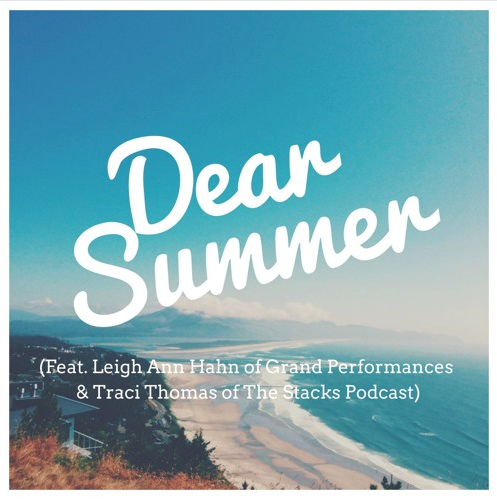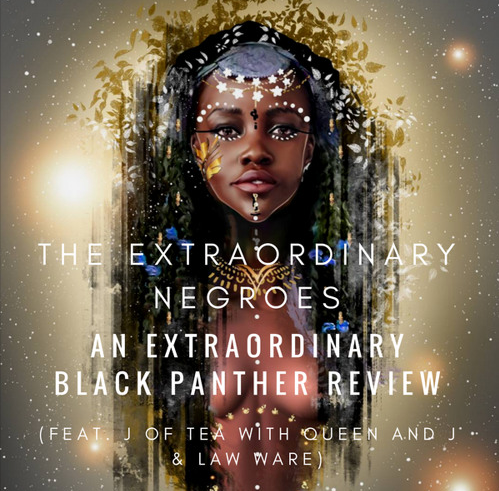Laura Mvula, singer, mental health advocate
Oh, hey. Welcome to another round of Mental Health Monday, your weekly dose of stories, resources, and motivation for your everyday life. On last week's roundup, we featured a new VICELAND series that takes some of your favorite artists to therapy, reflections by Naomi Campbell on the discrimination she received when she sought help with drug abuse challenges, thoughts on how mental health is depicted in the media, and so forth. Have a gander.
If you're in New York, come on out and join Alex at the Schomburg Center for Research in Black Culture on Wednesday, May 31 at #GetSomeJoy: A Blackstavaganza for Mental Health Awareness, featuring Hari Ziyad, Jayson P. Smith, Alise Leslie, Andrew Shade, Danielle Belton, and Darnell Lamont Walker. Get tickets and more information here.
AND: Join us on The Extraordinary Negroes Facebook page for Mental Health Monday, live tonight at 9PM EST. Check out our first
THIS WEEK'S GOODNESS
"This Singer Just Made An Excellent Point About Mental Health Progress" by Kimberly Truong [Refinery29]
If you've ever suffered from anxiety, you'll know how common and easy it can be to get wrapped up in an overwhelming amount of stress over certain things. Anxiety is complex and manifests in many different ways for different people, but it can often involve being unable to put aside a feeling of worry that's triggered by certain situations.
For British singer Laura Mvula, her anxiety disorder is especially high when she's left alone.
"This anxiety thing is something that has dictated my life," she told The Guardian last year.
But now, Mvula is working steadily towards recovery and shared a powerful message about mental health progress on her Instagram. On Wednesday, the singer posted a photo of a London Underground tube station, explaining that she's overcoming her anxieties over traveling alone on the train.
And then Howard student Gabrielle Headly edited and directed documentary on students of color who struggle with their mental health.
"Mental Health Treatment Can Save Lives, But The Right Diagnosis Can Take Years" By Lindsay Holmes,Damon Dahlen,Isabella Carapella [HuffPost]
1,277 days. That’s approximately how long it took Nic Newling to figure out he was dealing with bipolar disorder after first reaching out for help.
"Black Folks and Mental Health: Why Do We Suffer in Silence" by Nia Hamm [HuffPost]
With the exception of African American celebrities or public figures who experience mental trauma, such as Illinois Representative Jesse Jackson Jr., or commit suicide as in the death of hip-hop legend Chris Lighty, mental health remains largely absent from the public discourse in the Black community.
But the statistics are loud and clear. African Americans are 20% more likely to report having serious psychological distress than non-Hispanic Whites, according to the U.S. Department of Health and Human Services Office of Minority Services. Yet young adult African Americans, especially those with higher levels of education, are less likely to seek mental health services than their White counterparts, according to a study published by the American Psychological Association.
"Removing the Stigma Surrounding Mental Health in Blacks" by Elisha Lowe RN, BSN, MBA [Black Enterprise]
“You can be sad today, and tomorrow too. And then you can be happy on Thursday, happy on Friday and then find yourself anxious on Saturday…it’s all OK because life is a journey and there’s no way we can all stay on the same path every single day of our lives forever. So that’s what I want this campaign to do, I want this campaign to highlight the various highs and lows of just being a human and understand that it’s OK either way.”
"Some black college students face hidden mental health crisis" by Beth Galvin [FOX 5 Atlanta]
When Ashanti Hampton of Stone Mountain graduated a year early from her racially-diverse DeKalb County high school -- with a 4.2 average -- Georgia Tech seemed like a perfect fit. Instead, she felt isolated, unable to connect.
"It's very hard. Engineering is hard in itself. But being alone in engineering, and struggling alone, and struggling silently, is even harder," says Hampton. "To be honest, I dealt with a lot of depression here. "
"You definitely have to prove you belong here, a lot," adds Seyi Gvadeagesin a third-year computer engineering student, born in Nigeria, and raised in North Carolina, says he, too, has struggled.
Image by Daniel Fishel (Thrillist)
"This NYC Therapist Is Prescribing Novels Instead of Pills" by Eliza Dumais [Thrillist]
NYC’s resident bibliotherapist, Noreen Tomassi (who doesn’t have a medical degree, but does have a bachelor’s degree in philosophy) serves as executive director at the Center for Fiction on East 47th St. The Center itself -- a gathering-grounds for die-hard lovers of fiction -- offers public speaker series, writing workshops, book groups, and a collection of elegant sky-lit reading rooms. It’s something of a sacred literary alcove, designed to shelter readers and writers from the outside thrum of New York. “How anyone who rides the NYC subway system five days a week manages to stay sane is a mystery,” Tomassi says. “In this beautiful, nasty, vibrant, and difficult city, people need oases for reflection.”
"The Mental Health Conversation We're Not Having Around Police Violence" by Rochaun Meadows-Fernandez [HuffPost]
But in the case of Edwards’ death, mentioning PTSD is exceptionally ironic: Continued cycles of police violence are often a source of trauma and can trigger pre-existing PTSD in the black community, an under-addressed problem according to experts.
In fact, a growing body of evidence suggests that black Americans may experience a specific type of PTSD, called race-based traumatic stress that is induced by repeatedly witnessing traumatic instances in person and via social media.
'I wouldn't have played': Dementia-stricken NFL great Nick Buoniconti says league officials are 'waiting for players to die' by Cheyenne Roundtree [Daily Mail]
The 76-year-old former middle linebacker for the Patriots and Dolphins was diagnosed with dementia in October 2016.
His illness means he can no longer tie his own shoelaces or dry himself after a shower.
Buoniconti is one of his many teammates suffering from brain disorders that they claim are due to football.
"The Inaccurate Portrayal of Mental Health in Television" by Kalia Richardson [The Panther]
"The major issue revolving around this exploitation remains the poor portrayal of mental illness. Some critics see the message in “13 Reasons Why” as glorifying the concept of suicide, through the accounts of its protagonist Hannah, an ignored and bullied teen.
Oftentimes, those diagnosed with the disorder appear as monsters, as seen in “Split,” when in reality they are normal people who may unfortunately struggle with the basic procedures of life. These so-called creatures are normal human beings seeking help."
"How The AHCA Could Scare Teens From Getting The Help They Need" by Elizabeth Strassner [Bustle]
One of the most widely discussed aspects of the AHCA could also be one of the most damaging for teens seeking help for mental illness: the possibility that insurers could once again charge higher rates due to pre-existing conditions, if coverage has been lapsed for more than 63 days. Pre-existing conditions include things like epilepsy and cancer but also include mental illnesses common among teens, like depression, anxiety, and substance abuse.
Strobach worries that this pre-existing condition concern might make parents less likely to seek support and resources for their struggling teens. "You might see some real hesitancy on behalf of people seeking out treatment they really need, because they’re afraid that... it will cause their premiums to skyrocket and they won’t be able to afford it," she says.
"Mental Health Conditions" [National Alliance On Mental Illness]
One in 5 adults experiences a mental health condition every year. One in 17 lives with a serious mental illness such as schizophrenia or bipolar disorder. In addition to a person's directly experiencing a mental illness, family, friends and communities are also affected.
Half of mental health conditions begin by age 14, and 75% of mental health conditions develop by age 24. The normal personality and behavior changes of adolescence may mimic or mask symptoms of a mental health condition. Early engagement and support are crucial to improving outcomes and increasing the promise of recovery.
Get your tickets HERE.
Are you a Black mental health professional? Do you know one? Alex is building a hub for Black wellness. Learn how you can be down.
Do you have a mental health-related story, video, event, or other content we should know about? Hit us up.












